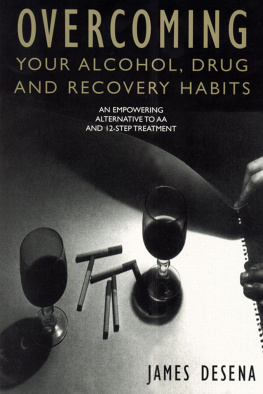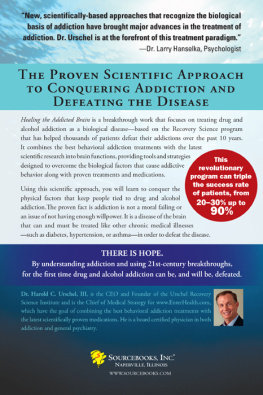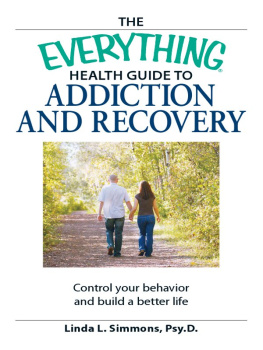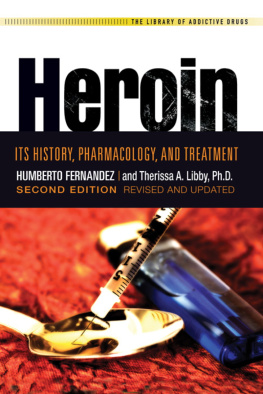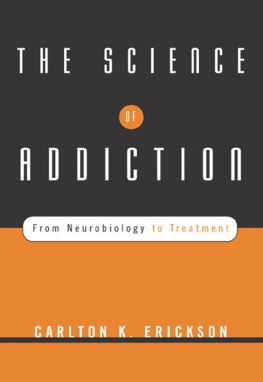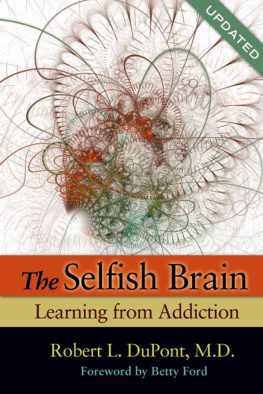CONTENTS
Guide
Gregory E. Pence has taught bioethics to medical and premedical students for forty-four years at the University of Alabama at Birmingham (UAB). His other works in bioethics include a bestselling textbook and seven trade books. In 2019 at UAB, partly because of this book, he won the Ireland Award for Scholarly Distinction.
T he idea for this book actually came many years ago. I had long admired the late Herbert Fingarette, a philosopher in Southern California whose book Heavy Drinking: The Myth of Alcoholism as a Disease I had assigned in several of courses. After I wrote an op-ed for the Birmingham News on the ethics of treating alcoholism, and after I received both praise and abuse, I contacted Fingarette because I knew he had endured similar reactions. We started to correspond, and he sent me some of his books. He also encouraged this book.
I then wrote a chapter on the ethical issues of treating alcoholism for the eighth edition of my Medical Ethics textbook in 2016, and it proved popular. After that, I did my first podcast with Francis Sweeny, MD, host of the popular podcast Straight Talk, MD, on alcoholism and addiction, which proved so successful that it helped me think this book could be worthwhile and which led to several other podcasts with Sweeny on bioethics.
Alfred Garwood, one of my oldest friends from graduate school in philosophy at New York University and now an independent scholar, quickly read an early draft of this book and made helpful, encouraging suggestions. As a former library director and book publisher, his comments were very valuable at an early time.
Andrew Morgan, a visiting assistant professor in ethics at UAB from 2018 to 2020, very generously read every page of the first complete draft, making astute comments on each one. Vanessa Bentley, another visiting assistant professor at UAB during the same years, kindly improved my chapter on the Neuroscience model. Michael Sloane, a psychologist and neuroscientist at UAB who also directs our University Honors Program, likewise read that early draft and responded with eight pages of wise comments. Peter J. Hughes, a professor at the McWhorter School of Pharmacy at Samford University, also was helpful.
Daniel Hurst, a young bioethicist who worked for a year for a pharmaceutical company and who teaches bioethics for Cahaba Valley Health Care and our medical school and Honors College, also read an early draft of this book and made great suggestions.
Jason Gray, a young philosopher and ethicist who teaches at Auburn University at Montgomery and who taught at UAB for two years, wrote his doctoral thesis at UC Riverside on philosophical issues about addiction. I profited from reading that dissertation, as well as from Jasons extensive comments on the first half of a book draft.
During the first three months of 2019, I also had four research assistants from my Early Medical Student Acceptance Program: Hamad Muhmmad, Wendy Jiang, Victoria Chen, and Melissa Ebeling. Later, both Victoria Chen and Melissa Ebeling went far beyond what normal student assistants do and took research assistant to a new level. I am very lucky to have such brilliant, hardworking, careful assistants who will one day soon make great physicians.
Thanks to Kaitlin Burge and Matthew Hudson for assistance with the index and Carly Snidow for her astute proofing.
Although I began thinking about this book long ago, I finished it during the first months of 2019 while on my first sabbatical in thirty-two years. After chairing the philosophy department for six years, I needed to step away to finish this book. I am grateful for UAB for giving me a paid sabbatical, an increasingly rare privilege in todays academia.
Finally, I talked to many people who are dealing with having someone they love battle alcoholism or addiction. I also talked with some people who have recovered. As desired, I have kept them anonymous, but I am still grateful to them for sharing their pain and successes with me. Their stories and needs kept this book painfully real.
Heroin was different. I loved it. It was the first thing that worked. It took away every scrap of hurt that I had inside of me. When I think of heroin now, it is like remembering a person I met and loved intensely. A person I know I must live without.
Cheryl Strayed, Heroin/e, Best American Essays 2000
T he numbers in the headlines each week stun us: In the year 2000, twenty thousand Americans died of drug overdoses, which seems like a lot, but just four years later, that number jumped to sixty-four thousand, implying that sixty-four thousand American families went through hell, often spiraling downward into financial disaster, sometimes accompanied by screaming matches about blame, and occasionally resulting in interventions that produced much resistance.
In North America and across the globe, the problems worsen each year. According to the National Center for Health Statistics, more Americans died in 2017 of drug overdoses than died from guns, HIV/AIDS, or car crashesmore than seventy thousand people. The search by journalists for good news became so bleak that their best hope in 2017 was that we had finally peaked at seventy thousand deaths in that year and that somehow, someway, that number would afterward ratchet down.
And so it was that, in late summer of 2019, when the Centers for Disease Control (CDC) had finally tabulated the tally of deaths from opioids during 2018, and after billions of new dollars spent on prevention and treatment, a weird hallelujah chorus erupted from Americas media that the overall number of deaths had finally dropped a bit. The good news? In 2018, only 68,577 Americans died from drug overdoses. At this rate of success, by 2025 the rate will be down to sixty thousand and only four hundred thousand more Americans will have died.
Opioids now cause the most deaths among Americans under fifty. We go tsk tsk when we hear that alcoholism in Russia each year has lowered the average life span, but a similar problem lies all around us.
But weve always had deaths from heroin and drug overdoses, right? Yes and no. First, since the FDA approved Oxycontin in 1995, two hundred thousand Americans have died of overdoses linked to prescription opioids such as Oxycontin.
By 2009, many millions of Americans had become addicted to oxycodone. When their prescriptions expired, they often switched to cheap heroin, which often came laced with fentanyl for the bigger high sought by addicted people. Eventually, as drug pushers and users sought better highs and more heroin contained fentanyl, thousands of users began to fatally overdose.
PROBLEMS OF DEFINING ADDICTION
Almost all definitions of addiction refer to both physical and mental dependence on alcohol or a narcotic, where users feel compelled to keep using and, when they try to stop, a craving to continue. When they do stop, they experience symptoms of withdrawal, usually unpleasant physical symptoms. At some point on the spectrum and as use of drugs continues, tolerance develops to alcohol, narcotics, and opiates, such that more of the drug is needed to get the same effect. At some point, habitual use becomes dependence and with tolerance becomes addiction and abuse of the substance. The term substance abuse is quite broad, covering abuse of opiates, alcohol, marijuana, legal and illegal drugs, and even psychedelic mushrooms.
In past usage, addiction referred to dependence only on substances such as alcohol and heroin, but in recent decades, the word has been expanded to include so-called behavioral addictions. A typical example is sex addiction, especially when people feel compelled to meet new dates for quick sex via social media; they admit that their behavior is not ideal, yet continue anyway.


